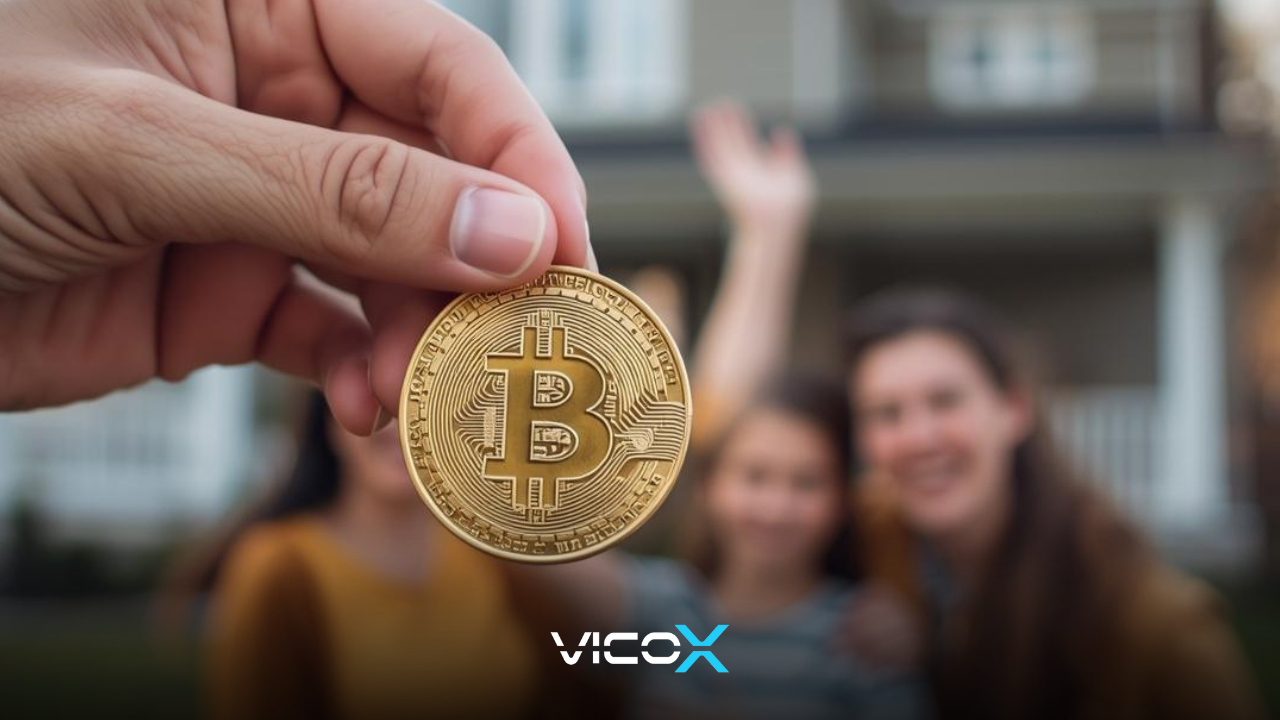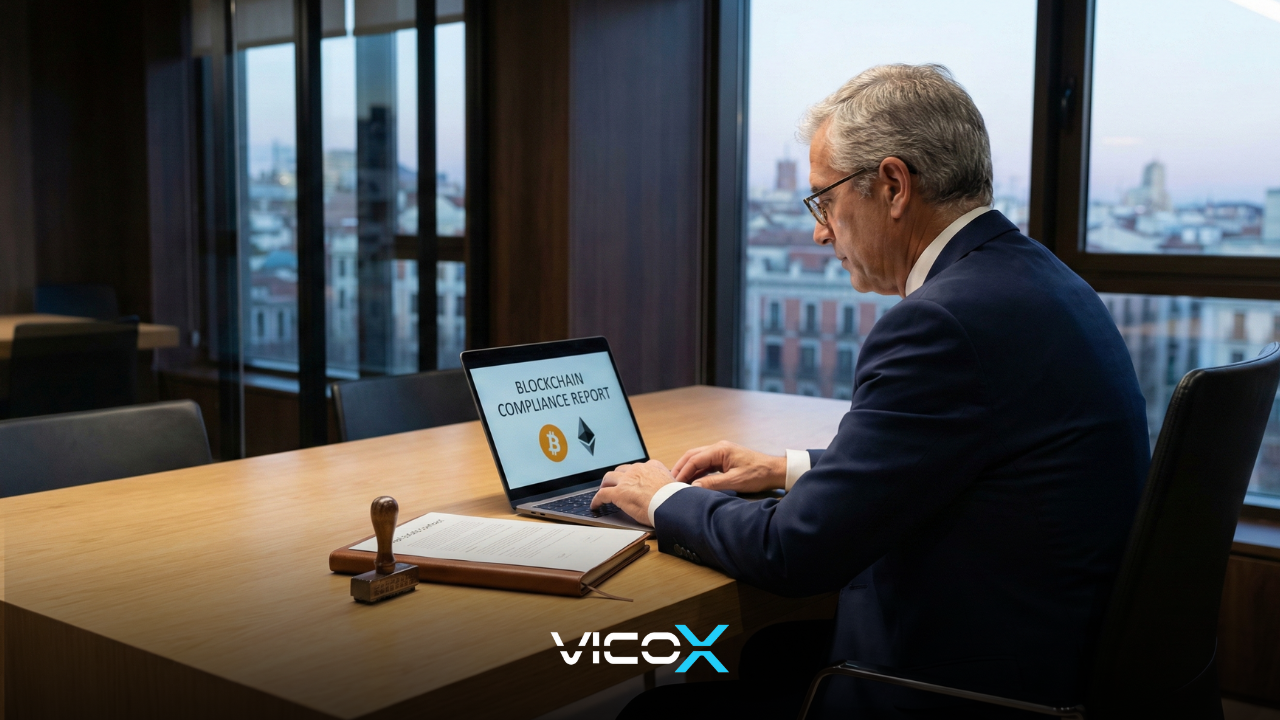Spain continues to attract international investors seeking lifestyle, financial diversification, and long-term value. With cryptocurrencies becoming mainstream, buying real estate in Spain using Bitcoin, Ethereum, or stablecoins is now a viable and growing opportunity.
This guide is designed for global investors to understand the legal, tax, and compliance aspects of crypto property transactions in Spain, providing a strategic perspective that complements practical step-by-step guides.
Understanding the Spanish Legal Framework for Crypto Real Estate
Spain’s property purchase process is built on transparency and legal security. Every real estate transaction must be notarized, registered, and compliant with anti-money laundering (AML) laws.
When crypto is involved, the same rules apply — but with an added layer of scrutiny regarding the origin of digital funds.
Key legal entities include:
- The Notary (Notario): certifies and validates the transaction before it is entered into the Land Registry.
- The Land Registry (Registro de la Propiedad): records ownership rights and prevents title disputes.
- The Lawyer (Abogado): ensures regulatory compliance, performs due diligence, and verifies the legitimacy of funds.
Understanding these roles ensures a smooth and fully compliant transaction for foreign crypto investors.
Why Consider Buying Real Estate in Spain With Crypto?
Investing in Spanish property with crypto offers several advantages:
- Borderless Transactions: Crypto enables fast cross-border transfers without traditional banking delays.
- Enhanced Security: Transactions are traceable on blockchain and offer strong privacy protections.
- Portfolio Diversification: Real estate provides tangible assets alongside digital holdings.
- Potential Tax Efficiency: Structured properly, crypto-to-property acquisitions can optimize capital gains and transfer taxes.
However, these benefits come with responsibilities. Legal compliance, AML/KYC, and accurate tax reporting are critical to avoid sanctions or financial risks.
Regulatory and Legal Considerations for International Buyers
Spain recognizes cryptocurrency as a digital asset, subject to AML/KYC and regulatory oversight. Investors must comply with:
- Verification of buyer identity and source of funds.
- Accurate record-keeping for crypto transactions.
- Contracts compliant with Spanish civil and commercial law.
AML and KYC compliance is mandatory for international investors. Law firms like Vicox Legal assist in ensuring that all transactions meet regulatory standards, including the tracing of funds and escrow handling.
MiCA Regulation and Its Impact on Crypto Transactions in Spain
The Markets in Crypto-Assets (MiCA) Regulation, implemented across the European Union in 2024, establishes a unified framework for digital assets.
Under MiCA, Spain enforces stronger standards for wallet verification, stablecoin use, and crypto-fiat conversions.
For investors, this means:
- Only regulated crypto providers can facilitate conversions to euros.
- Stablecoins such as USDT or USDC are preferred for transactional transparency.
- Exchanges must report transactions exceeding AML thresholds.
MiCA strengthens Spain’s position as one of the most compliant and investor-safe markets for crypto real estate transactions in Europe.
Tax Planning Strategies for Crypto Real Estate Investors
Tax implications vary depending on residency, transaction structure, and crypto classification. Considerations include:
- Capital Gains Tax: Triggered when converting crypto to euros.
- Property Transfer Tax (ITP) or VAT: Applies depending on property type.
- Wealth and Municipal Taxes: Ongoing obligations after purchase.
Professional tax planning can minimize liabilities and ensure compliance. Using stablecoins or properly structured exchanges can reduce volatility and simplify reporting.
Legal Structures for Crypto Investors: Individuals, Companies, and Trusts
Choosing the right ownership structure affects tax efficiency and legal exposure.
1. Individual ownership: Simplest route, suitable for private investors. Income and capital gains are declared personally.
2. Corporate structure (SPV): Often used by foreign investors to manage multiple assets and optimize taxation.
3. Trust or holding structure: Common among high-net-worth investors seeking asset protection and estate planning advantages.
Each structure offers distinct benefits. Vicox Legal advises on how to optimize ownership models to reduce tax obligations while ensuring transparency and compliance.
Structuring Safe and Compliant Crypto Property Transactions
Global investors should work with a law firm experienced in crypto real estate. Key steps include:
- Legal Due Diligence: Verify property ownership, liens, and regulatory compliance.
- Escrow and Payment Channels: Options include regulated exchanges, escrow wallets, or smart contracts.
- Contract Preparation: SPA, private contracts, and notary documentation.
- Timeline Management: Coordinating buyer verification, contract signing, payment, and land registry registration.
The Role of Escrow, Smart Contracts, and Blockchain Verification
Blockchain technology enhances transparency but must work hand in hand with Spanish law.
- Escrow accounts (crypto or fiat) protect both buyer and seller until the notary signs the deed.
- Smart contracts automate certain steps, such as releasing funds upon property registration.
- Blockchain verification allows timestamped proof of payment and transaction history, meeting AML traceability requirements.
Vicox Legal collaborates with licensed OTC providers and escrow agents to guarantee secure, compliant payments for international investors.
Risk Mitigation for International Investors
Investing in crypto real estate carries unique risks. Mitigation strategies:
- Volatility Management: Convert funds to stablecoins prior to transaction.
- Fraud Prevention: Only transact with verified lawyers, notaries, and reputable property sellers.
- Compliance Assurance: Maintain complete AML/KYC records and ensure regulatory alignment.
- Document Archival: Keep full records of contracts, wallet transfers, and tax filings.
Case Study: Crypto Property Purchase in Marbella
A Dubai-based investor acquired a €1.2M villa in Marbella using USDC. The transaction was executed through a regulated OTC desk with Vicox Legal handling escrow and KYC.
Within 72 hours, the funds were verified, converted to euros, and deposited into the notary’s account for final signing.
This case demonstrates how properly structured crypto transactions can be both fast and fully compliant under Spanish and EU regulations.
Why Choose Vicox Legal for Crypto Real Estate in Spain
Vicox Legal specializes in helping international investors structure compliant crypto-to-property transactions. Services include:
- Comprehensive legal due diligence on Spanish properties.
- Structuring safe and compliant crypto payments.
- Tax planning and optimization strategies.
- Escrow and smart contract setup.
With our guidance, global investors can navigate Spanish real estate purchases securely, legally, and efficiently.

Request Legal Assistance for Your Crypto Real Estate Investment in Spain
Compliance and Documentation Requirements
International buyers need to provide:
- Verified identification and proof of residency.
- Documentation proving the source of cryptocurrency funds.
- Bank or exchange statements for audit purposes.
- Legal representation agreements and signed contracts.
Proper documentation ensures smooth transactions, reduces risk, and guarantees compliance with Spanish laws.
Step-by-Step Legal Process for Crypto Property Transactions in Spain
- Initial Consultation: Define objectives, residency status, and investment structure.
- Due Diligence: Property verification, lien checks, and contract drafting.
- Crypto-Fiat Conversion: Conducted via regulated exchange or OTC desk.
- Escrow Setup: Buyer transfers funds to escrow account pending verification.
- Notary Signing: Final deed signed; funds released to seller.
- Registration: Property entered into the Spanish Land Registry.
- Tax Reporting: Submit ITP or VAT forms and declare capital gains, if applicable.
This standardized process ensures full legal traceability, transparency, and regulatory compliance for foreign buyers.
International Perspective and Comparative Insights
While Spain is increasingly crypto-friendly, investors often compare markets:
- Portugal: Favorable tax regime, Golden Visa opportunities.
- Dubai: Fast-growing crypto acceptance, luxury property market.
- USA: Legal clarity varies by state; high-value property opportunities in Miami and Texas.
Understanding international regulations helps investors structure optimal investment strategies while mitigating risk.
Future Outlook: Tokenization and Blockchain in Spanish Real Estate
Spain is preparing to adopt tokenization for property investments. Blockchain-based registries could soon allow fractional ownership and direct on-chain property title transfers.
Legal experts expect that, by 2026–2027, regulated tokenized assets will be tradable under MiCA-compliant platforms, transforming real estate liquidity and accessibility for global investors.
FAQs – Crypto Real Estate in Spain
Which cryptocurrencies are most commonly accepted for property purchases in Spain?
Bitcoin (BTC), Ethereum (ETH), and stablecoins such as USDT or USDC are the most widely accepted cryptocurrencies. Most transactions are completed using regulated exchanges or OTC desks for compliance purposes.
Are there any legal restrictions on using Bitcoin to buy a house in Spain?
No specific restriction exists, but Spanish notaries require full AML/KYC documentation and usually mandate euro conversion at the final signing stage for legal registration.
How is the price of a property determined when paying with cryptocurrency?
The property price is always set in euros. The equivalent crypto amount is calculated at the exchange rate agreed upon at the time of payment or conversion, typically verified through an official exchange statement.
Do I have to declare my Bitcoin payment to the Spanish tax authorities?
Yes. Both the crypto-to-fiat conversion and the property acquisition must be reported to Spanish tax authorities. Capital gains may apply depending on your tax residency and the origin of funds.




